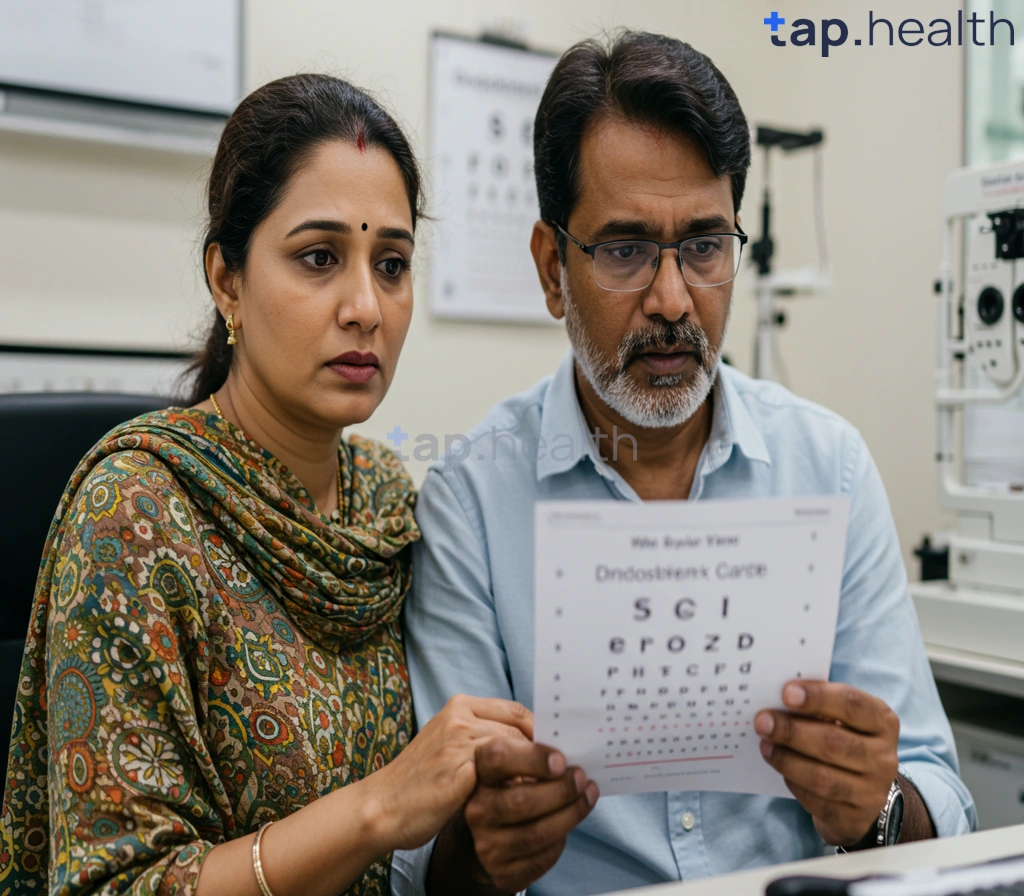Table of Contents
- Conquer Sleep Issues Related to Diabetes
- 6 Expert Tips to Improve Your Sleep with Diabetes
- Diabetes and Sleep Problems: A Guide to Better Rest
- Is Your Diabetes Affecting Your Sleep? Find Out Now!
- Improve Sleep Quality: Expert Tips for Diabetics
- Frequently Asked Questions
- References
Are you struggling to get a good night’s sleep because of your diabetes? You’re not alone. Many people with diabetes experience sleep disturbances, impacting their overall health and well-being. But don’t despair! This isn’t an unwinnable battle. In this post, we’ll explore practical strategies to help you conquer diabetes-related sleep problems. We’ve compiled six expert tips to help you reclaim restful nights and improve your diabetes management. Let’s dive in and discover how you can finally get the sleep you deserve.
Conquer Sleep Issues Related to Diabetes
Diabetes significantly impacts sleep quality. Research shows a staggering 70% increased risk of sleep apnea and other sleep disorders in individuals with diabetes. This isn’t just about feeling tired; poor sleep exacerbates diabetes management, leading to higher blood sugar levels and increased health complications. In hot and humid climates prevalent across India and tropical countries, these issues can be even more pronounced. Managing your sleep is crucial for managing your diabetes.
6 Expert Tips for Better Sleep with Diabetes
1. Maintain a Consistent Sleep Schedule: Go to bed and wake up around the same time each day, even on weekends, to regulate your body’s natural sleep-wake cycle. This is especially important in regions with varying daylight hours.
2. Create a Relaxing Bedtime Routine: Wind down an hour or two before bed. Avoid screens, engage in calming activities like reading or meditation, and ensure your bedroom is cool, dark, and quiet. Consider incorporating traditional Indian relaxation techniques like yoga or pranayama.
3. Manage Blood Sugar Levels: High or low blood sugar can disrupt sleep. Regular blood sugar monitoring and adherence to your diabetes management plan are essential. Consult your doctor for personalized guidance.
4. Stay Hydrated but Limit Fluids Before Bed: Dehydration can worsen sleep problems, but excessive fluid intake might lead to frequent nighttime bathroom trips. Find a balance that works for you, especially considering the hot climate.
5. Address Sleep Apnea: If you suspect you have sleep apnea, consult a doctor. Untreated sleep apnea can seriously impact your health and diabetes management. Early diagnosis and treatment are vital. For more information on the connection between diabetes and sleep apnea, read our article: The Connection Between Diabetes and Sleep Apnea.
6. Prioritize Physical Activity: Regular exercise improves sleep quality and helps manage blood sugar levels. Choose activities suitable for the climate, perhaps opting for early morning or evening walks to avoid the midday heat.
Take control of your sleep and your diabetes. Consult your doctor or a certified diabetes educator for personalized advice tailored to your specific needs and the climate you live in. Better sleep contributes to better overall health and well-being. To learn more about the vital role of quality sleep in managing diabetes, we recommend reading The Importance of Quality Sleep in Managing Diabetes.
6 Expert Tips to Improve Your Sleep with Diabetes
Millions struggle with diabetes, and a significant portion—61% are aged between 20-64 years, while 39% are 65+—also grapple with sleep disturbances. In India and tropical countries, where heat and humidity can further exacerbate sleep issues, managing diabetes-related sleep problems is crucial for overall well-being. These six expert tips offer practical solutions to improve your sleep quality.
1. Optimize Your Blood Sugar Levels:
Consistent blood glucose control is paramount. High or low blood sugar can disrupt sleep. Regularly monitor your blood sugar, especially before bed, and adjust your medication or diet as needed. Consult your doctor to establish a personalized management plan suitable for your age and lifestyle.
2. Prioritize Regular Exercise:
Physical activity improves insulin sensitivity and regulates blood sugar, leading to better sleep. Aim for at least 30 minutes of moderate-intensity exercise most days of the week. Consider activities suitable for the Indian climate, such as early morning or evening walks or yoga.
3. Create a Relaxing Bedtime Routine:
Establish a calming pre-sleep routine to signal your body it’s time to rest. This might include a warm bath, reading a book, or gentle stretching. Avoid screen time at least an hour before bed, as the blue light emitted from devices can interfere with sleep.
4. Manage Stress Effectively:
Stress elevates cortisol levels, disrupting sleep patterns. Practice relaxation techniques like meditation, deep breathing exercises, or mindfulness to reduce stress and promote relaxation before sleep. Consider incorporating traditional Indian stress-reducing practices like pranayama.
5. Create a Sleep-Conducive Environment:
Ensure your bedroom is dark, quiet, and cool. In hot and humid climates, consider using a fan or air conditioner to maintain a comfortable temperature for restful sleep.
6. Consult a Healthcare Professional:
Don’t hesitate to seek professional help. If you consistently experience sleep problems despite following these tips, consult your doctor or a sleep specialist. They can help identify underlying issues and recommend appropriate treatment options. Addressing sleep disorders is vital for managing diabetes effectively, particularly for the growing population of people with diabetes in India and across tropical regions. For more comprehensive strategies, check out our guide on 10 Proven Tips for Effective Diabetes Management. And if you’re wondering about the connection between sleep and diabetes, you might find this article helpful: Does Sugar Diabetes Make You Sleepy? – Tap Health
Diabetes and Sleep Problems: A Guide to Better Rest
Diabetes significantly impacts sleep, contributing to a concerning 9-12% loss in work productivity across many nations due to complications and absenteeism. In hot and humid climates prevalent across India and tropical countries, these sleep disturbances can be even more pronounced. Managing blood sugar effectively is crucial for improving sleep quality, but it’s not the only factor.
Understanding the Connection
High blood sugar (hyperglycemia) can lead to frequent nighttime urination, leaving you feeling exhausted. Conversely, low blood sugar (hypoglycemia) can trigger night sweats, anxiety, and disrupted sleep cycles. These fluctuations, exacerbated by the heat and humidity common in many Indian and tropical regions, disrupt the delicate balance of restorative sleep. Regular monitoring of blood glucose levels is therefore critical, especially before bedtime.
6 Expert Tips for Better Sleep with Diabetes
1. Maintain a consistent sleep schedule: Going to bed and waking up around the same time each day, even on weekends, regulates your body’s natural sleep-wake cycle.
2. Create a relaxing bedtime routine: Avoid screens at least an hour before bed and opt for calming activities like meditation or warm baths.
3. Optimize your sleep environment: Ensure your bedroom is cool, dark, and quiet. In tropical climates, consider using fans or air conditioning to manage temperature.
4. Manage stress: Practice stress-reducing techniques like yoga or deep breathing exercises, as stress can worsen diabetes-related sleep issues.
5. Regular exercise: Physical activity can improve sleep quality, but avoid intense workouts close to bedtime.
6. Consult your doctor: If sleep problems persist, seek professional advice. They can help identify underlying issues and recommend appropriate treatment strategies. This is especially important as you age, and you may find helpful advice in our article on Managing Diabetes as You Age: Challenges and Solutions.
By implementing these tips and managing your diabetes effectively, you can significantly improve your sleep quality and overall well-being, boosting productivity and improving your quality of life, especially in the challenging climate of many Indian and tropical countries. Speak to your doctor today to develop a personalized plan for better sleep. Remember that even travel can impact your blood sugar levels and sleep, so if you have upcoming trips, be sure to check out our guide on Traveling with Diabetes: Essential Tips for a Safe & Healthy Journey.
Is Your Diabetes Affecting Your Sleep? Find Out Now!
Diabetes affects millions globally, with a staggering 6.7 million deaths in 2021—that’s one death every five seconds. In hot and humid climates prevalent across India and other tropical countries, these sleep disturbances can be even more pronounced. High temperatures and humidity already impact sleep quality, exacerbating the challenges faced by individuals with diabetes.
Understanding the Connection
High blood sugar levels, a hallmark of diabetes, can disrupt your sleep cycle. This can manifest as difficulty falling asleep (insomnia), frequent nighttime awakenings, or excessive daytime sleepiness. In tropical regions, factors like dehydration and increased sweating due to the climate can further worsen these symptoms. This is closely related to the question, Why Do Diabetics Get Sleepy After Eating?, as post-meal blood sugar spikes can significantly impact sleep.
6 Expert Tips for Better Sleep
1. Manage Blood Sugar: Consistent blood sugar control is paramount. Regular monitoring and adherence to your prescribed medication and diet plan are crucial.
2. Optimize Your Diet: Avoid large meals or sugary snacks close to bedtime. A light, balanced dinner is recommended.
3. Stay Hydrated: Dehydration can worsen diabetes symptoms and disrupt sleep. Drink plenty of water throughout the day, especially in hot climates.
4. Create a Cool Sleep Environment: In tropical countries, maintaining a cool bedroom temperature is vital. Use fans, air conditioning, or cooling sheets to improve sleep quality.
5. Prioritize Physical Activity: Regular exercise can improve blood sugar control and promote better sleep, but avoid intense workouts close to bedtime.
6. Consult a Healthcare Professional: If you’re struggling with sleep problems despite managing your diabetes, seek professional advice. A doctor can help identify underlying issues and recommend appropriate treatment.
Take Control of Your Sleep
Don’t let diabetes control your sleep. By implementing these tips and prioritizing your health, you can significantly improve your sleep quality and overall well-being, even in the challenging conditions of a tropical climate. Consult with your doctor or a diabetes specialist for personalized guidance. Remember, understanding the connection between diet and sleep is key, and sometimes, is feeling sleepy after eating a sign of diabetes? It’s important to address these questions with your doctor.
Improve Sleep Quality: Expert Tips for Diabetics
Experiencing disrupted sleep? For individuals with diabetes, particularly in hot and humid climates prevalent across India and tropical countries, sleep disturbances are a common and significant concern. This isn’t just about feeling tired; poor sleep can worsen blood sugar control, increasing the risk of long-term complications. Did you know that daily consumption of sugary beverages raises diabetes risk by 26%? Managing your blood sugar effectively is crucial for better sleep, and vice-versa.
Prioritize Blood Sugar Control Before Bed
Consistent blood glucose levels are paramount. Aim for a balanced, low-glycemic index dinner several hours before bedtime to prevent nighttime blood sugar spikes that can disrupt sleep. Avoid sugary drinks and processed foods, especially in the evening hours. For ideas on suitable bedtime snacks, check out our guide on What is a Good Bedtime Snack for Diabetics?
Create a Relaxing Bedtime Routine
Establish a calming pre-sleep routine to signal your body it’s time to rest. This could include a warm bath, gentle yoga or stretching, meditation, or reading a book. Avoid screen time at least an hour before bed, as the blue light emitted from electronic devices interferes with melatonin production, a hormone crucial for sleep. In the warmer climates, consider a cool-down strategy like a damp cloth on your forehead.
Optimize Your Sleep Environment
Ensure your bedroom is cool, dark, and quiet. In tropical regions, consider using a fan or air conditioning to maintain a comfortable sleeping temperature. A comfortable mattress and pillows are also crucial for restful sleep.
Manage Stress Effectively
Stress significantly impacts sleep quality. Practice stress-reduction techniques like deep breathing exercises, mindfulness meditation, or spending time in nature. Consider incorporating traditional Indian relaxation practices like pranayama (breathing exercises).
Regular Physical Activity
While avoiding strenuous exercise close to bedtime, regular physical activity throughout the day can significantly improve sleep quality. Aim for at least 30 minutes of moderate-intensity exercise most days of the week. Just remember to avoid overexertion, especially in hot weather.
Consult a Healthcare Professional
If you continue to experience significant sleep problems despite trying these tips, consult your doctor or a certified diabetes educator. They can help identify underlying issues and recommend appropriate treatment strategies. Addressing sleep disturbances is an important part of managing diabetes effectively and improving your overall well-being. Remember, prioritizing your sleep is a crucial step towards better health management. For more tips on improving your sleep hygiene without medication, see our article on Sleep Hygiene Tips for Better Rest Without Medication.
Frequently Asked Questions on Conquer Diabetes Sleep Problems
Q1. How does diabetes affect my sleep?
Diabetes can significantly impact sleep quality, increasing the risk of sleep disorders and making it harder to manage your blood sugar levels. Poor sleep, in turn, can worsen diabetes and lead to further health complications.
Q2. What are some simple steps I can take to improve my sleep if I have diabetes?
Maintain a consistent sleep schedule, create a relaxing bedtime routine (avoid screens, try yoga or deep breathing), manage your blood sugar levels effectively, stay hydrated (but limit fluids before bed), and get regular exercise (avoid intense workouts close to bedtime).
Q3. Does climate affect my sleep if I have diabetes?
Yes, hot and humid climates can worsen sleep problems in people with diabetes. Keeping your sleep environment cool and comfortable is important.
Q4. What should I do if I suspect I have sleep apnea or another sleep disorder related to my diabetes?
It’s crucial to consult a doctor or a certified diabetes educator. They can diagnose any sleep disorders and create a personalized management plan.
Q5. Where can I find more personalized advice on improving my sleep with diabetes?
Consulting a doctor or a certified diabetes educator is recommended. They can assess your specific situation and provide tailored advice, especially considering factors like climate and existing health conditions.
References
- A Practical Guide to Integrated Type 2 Diabetes Care: https://www.hse.ie/eng/services/list/2/primarycare/east-coast-diabetes-service/management-of-type-2-diabetes/diabetes-and-pregnancy/icgp-guide-to-integrated-type-2.pdf
- What is Diabetes: https://www.medschool.lsuhsc.edu/genetics/docs/DIABETES.pdf




